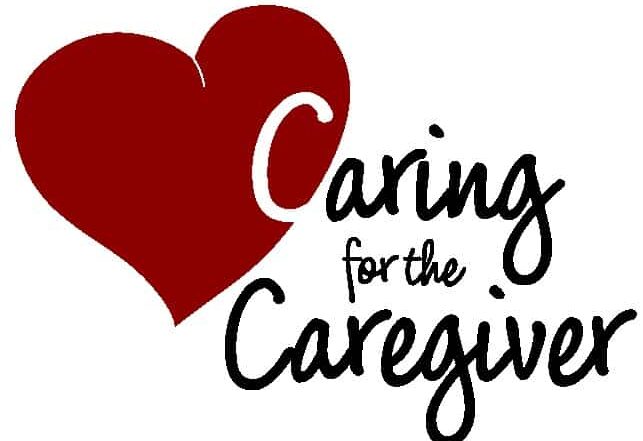“If you are an exhausted or overwhelmed caregiver, this presentation is for you.”
Amanda Tami, LPC, BCBA, discusses the importance of self-care for adult caregivers supporting people with special needs, including autism. She provides context for mental health in the US and highlights the importance of self-care in the modern world. The speaker outlines factors that affect mental health, discusses burnout compared to depression, and describes issues with the way society views and idealizes self-care. Tami reframes self-care using five key aspects to create more accessible and realistic expectations for adult caregivers. She emphasizes short personalized self-care routines that can be done alongside other responsibilities and notes the trial and error of discovering what works. Throughout the presentation, Tami highlights community support and socialization. She provides references and resources before the Q & A.
Learn more about our speaker HERE
Take the knowledge quiz for this presentation HERE
In this webinar:
0:40 – Introduction and agenda
2:58 – Factors that may impact mental health
4:20 – Risks for parents of children with autism
5:50 – Relationship challenges
7:26 – Family needs
8:16 – What is burnout
9:52 – Burnout vs depression
12:20 – Improvement as a major difference
13:11 – COVID-19 Pandemic impact on mental health
14:20 – Societal issues with self-care
15:56 – Expectations vs reality
18:00- Self-care for a bad day
19:25 – You don’t need to earn that nap
20:26 – Reframing self-care
21:19 – Setting priorities
23:15 – Setting boundaries
26:50 – Recognizing the non-negotiables
28:50 – Self-care via Maslow’s Hierarchy of Needs
31:54 – Find a purpose
33:10 – Filling your cup
35:29 – Key to filling your cup
36:10 – Possible self-care activities
40:12 – Daily cup flowchart
42:09 – Community care vs self-care
45:45 – Three important questions
48:08 – References and resources for parents
48:30 – Q & A
Tami introduces the presentation agenda (0:40) and summarizes the current face of mental health in the US (1:30). Since the pandemic, she explains, the number of people seeking assistance for mental health has significantly increased. However, up to 66% of those individuals never attain care (2:33). She emphasizes the importance of self-care in light of such data and lists factors that can impact mental health (especially for caregivers and parents of individuals with disabilities): stressors related to diagnosis and treatment, relationships difficulties, family needs, work, and burnout (2:58). Tami highlights that parents of children with autism are at a higher risk for acute and chronic stress than parents of children with other disabilities and neurotypical children (4:20).
The speaker gives real-world examples and descriptions of relationship challenges faced by caregivers and parents of autistic individuals (5:50). She underscores how overwhelming family, household, and employment needs are (7:26) and that they often lead to burnout, especially for parents of kids with disabilities (8:16). Burnout, Tami explains, is an exhaustion syndrome caused by a gap between resources and demands and can apply to parenting, caretaking, and any other form of work (8:41). The presenter compares burnout to depression (9:52), noting differences in terminology and qualifications and similarities in physical and physiological symptoms (11:30). Tami discusses the impact of the COVID-19 pandemic on mental health, citing a study that found 43% of caregivers reported an increase in pre-existing mental health conditions post-pandemic (13:11).
Even with the enormous responsibility and long to-do lists of caregivers, many single parents or solo caregivers must navigate independently (14:20). The speaker describes misconceptions in our expectations of what self-care looks like (15:56) and explains how idealized self-care strategies (i.e., long walks in nature, vacation, cleaning the whole house) are often not realistic (15:56). Tami emphasizes benefits of doing less (18:40) and asks viewers to consider when/why they learned that their self-care needs are lesser than everyone else’s (20:20).
The presenter reframes self-care (20:26) to include five key aspects:
1. Set priorities (21:19)
From a young age, we learn (especially women) that making yourself a priority is selfish and wrong. Tami asserts that we must question this narrative and “add ourselves to the list of priorities.”
Tip: You can start by telling yourself that practicing self-care is helping others because you will be able to care for them better if you are healthy.
2. Set boundaries (23:15)
A boundary is a “limit to what you will do and what you are willing to take on as your responsibility.” It’s best to discuss boundaries before they need to be enforced, Tami states, as it allows for more realistic expectations and more meaningful interactions.
Tip: When someone asks you to do something, finish what you were doing first.
3. Recognize the non-negotiables (26:50)
Maslow’s Hierarchy of Needs places physiological (biological) needs at the base of the pyramid, followed by safety needs, love and belonging, esteem, and self-actualization. If one’s biological (baseline) needs are not fulfilled, one can meet no higher need. Tami encourages viewers to reframe their self-care in this view, starting from the bottom up (28:50).
Ask yourself: How much water am I drinking? Am I eating and sleeping enough? How much news and social media do I take in? How may that be affecting me? Do I need to reach out to someone? (30:30).
4. Find a purpose (31:54)
Take time to rediscover and relearn what you like, or pick up a new hobby. The speaker suggests anything from leisure activity to advocacy but warns that over-investing in macro causes can lead to burnout.
Ask yourself: I am a parent/caretaker… and? What do I want to be to the world?
5. Fill your cup (33:10)
Tami rethinks the “fill-your-cup metaphor” (34:03), asserting that the goal is to keep the cup from running empty. Using practical, simple, and repeatable self-care activities (35:29) throughout the day helps to consistently “refill” one’s cup a bit at a time (40:12). She lists potential activities, including an extra long shower, alone time in the car, small movements, intentionally enjoying what you buy for yourself, using your senses, or anything that changes your focus or energy. The speaker underscores that it’s okay to do what you need to do to get time for yourself – this includes allowing kids screen time when you need to unplug (36:10).
Ask yourself: What energizes me? What depletes my energy?
Tip: Make lists of needs versus wants
The presenter touches on community care as a hopeful paradigm for the future, as it is clear that caregiving, like life, is not meant to be done alone (42:09). She underscores the power behind the principle of universality and urges viewers to attend events where people in similar situations will be (43:00). Tami leaves viewers with three critical questions to ask themselves: What brings me joy? What is the unmet need? What prevents me from getting that need met (45:45)? She provides references and resources for parents before the Q & A addressing questions about finding communities, delegating roles/responsibilities, how to set boundaries amid blowback, and much more (48:30).
The speaker:

Amanda Tami is a Board Certified Behavior Analyst and a Licensed Professional Counselor at The Johnson Center for Child Health & Development. She provides behavior analytic services and psychotherapy to children and adults on the autism spectrum and their families. She also has experience treating co-occurring conditions such as anxiety, depression, ADHD, and trauma. Amanda has specialized training in EMDR therapy and its applications to children. In addition to individual therapy, Amanda provides training and consultation to parents and providers on various topics including building emotion regulation, support across the lifespan for individuals with ASD, and trauma-informed ABA.
Take the knowledge quiz
Can’t see the quiz below? Take it online HERE
Parents and Caregivers: The Importance of Self-Care
“If you are an exhausted or overwhelmed caregiver, this presentation is for you.” Amanda Tami, LPC, BCBA, discusses the importance of self-care for adult caregivers supporting people with special needs, including autism. She
Holiday Considerations for Families During COVID-19
The holidays may bring extra challenges for families this year - and particularly so for individuals on the autism spectrum. Learn tips for coping with the holiday season
Friends & Family: What to say
As a friend or a family member to a loved one who has recently received an autism diagnosis, it can be challenging to know the right way to be supportive. Here are
Caring for the Caregiver
Free certificates of participation are available upon completion of brief knowledge quiz: https://www.classmarker.com/online-test/start/?quiz=bvk5694324ee56d7 Listen to nutritionist Kelly Barnhill discuss the importance of self-care for adult caregivers, focusing on reasonable dietary and lifestyle
What to Do When you Think You’ve Done it All
What to Do When you Think You’ve Done it All Presented by Vicki Kobliner, MS, RD at the Fall 2012 Autism Research Institute Conference Published: 12/05/2012 Ms. Kobliner is a Registered Dietitian






